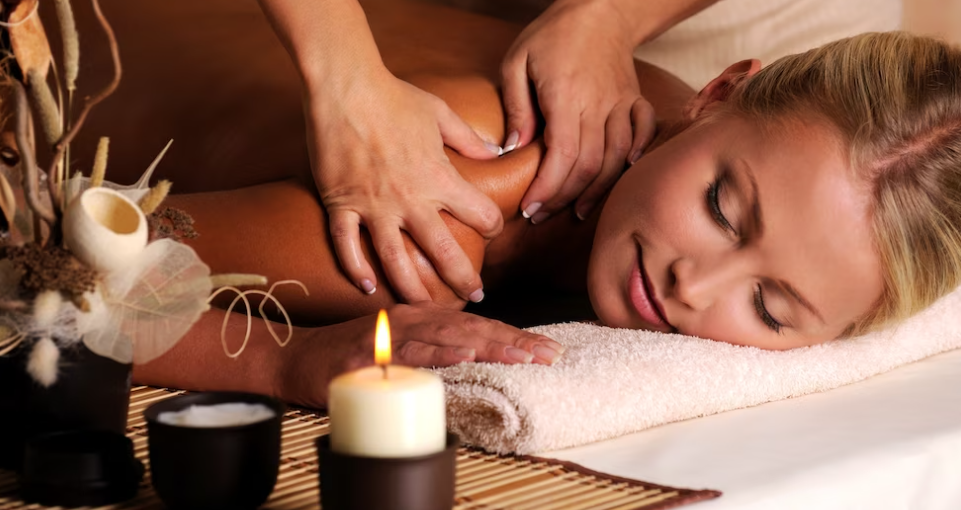What to Expect From Aromatherapy? Uses and Benefits

© valuavitaly / Freepik
After a long stressful day at work, at school, or just a personal situation, the only thing that can make everything better is a good relaxation method. Something to ease your mind, alleviate your stress, and allow you to sit back and enjoy the moment. While there are plenty of relaxation methods out there, this one seems to always rank first among people. That number one place is taken by aromatherapy. But, what exactly is aromatherapy, and what does it do? Let’s find out together!
What Is Aromatherapy?
Aromatherapy, also known as essential oil therapy, is a holistic healing approach that harnesses the power of natural plant extracts to enhance overall health and well-being. It utilizes aromatic essential oils derived from plants for medicinal purposes, addressing not only physical but also emotional well-being.

This practice is considered both an art and a science, and in recent times, it has gained increased recognition and acceptance in the scientific and medical communities. The essential oils used in aromatherapy are believed to have various therapeutic properties and can be applied in different ways, such as through inhalation, massage, or diffusion, to improve not only the physical health of individuals but also their mental and emotional states
Aromatherapy Nowadays
Aromatherapy is becoming more integrated into traditional healthcare systems, providing a complementary and alternative approach to promoting holistic wellness. It offers a holistic approach that considers the interconnectedness of the body, mind, and spirit in pursuit of improved health and quality of life.
How Does Aromatherapy Work?
Aromatherapy works through the use of aromatic essential oils to promote physical, emotional, and mental well-being. The mechanisms of action of aromatherapy are multifaceted and can be understood as follows:
1. Inhalation and Olfactory System
When you inhale the aroma of essential oils, the scent molecules travel through the olfactory system, which includes the nose and the brain. The olfactory system is directly linked to the limbic system, which is associated with emotions, memory, and behavior.
Aromas can trigger emotional responses, affect mood, and evoke memories. For example, the scent of lavender is often used to promote relaxation and reduce stress because it has a calming effect on the nervous system.
2. Absorption Through the Skin
Essential oils can be absorbed through the skin when applied topically. They are lipophilic, meaning they can penetrate the skin’s lipid barrier and enter the bloodstream.
Once absorbed, essential oil compounds may have localized effects, such as reducing inflammation or promoting skin health.
3. Physiological Effects
Essential oils contain chemical compounds that can exert various physiological effects. For example, tea tree oil is known for its antimicrobial properties, making it effective for skin issues.
Some essential oils have analgesic (pain-relieving) properties, making them suitable for massage or topical application to relieve muscle aches and pains.
4. Stimulation of Neurotransmitters
Certain essential oils may influence the release of neurotransmitters in the brain. For example, citrus scents like lemon and orange are thought to have uplifting effects due to their potential to increase the release of serotonin, a mood-enhancing neurotransmitter.
5. Regulation of the Autonomic Nervous System
Aromatherapy can influence the autonomic nervous system, which controls functions like heart rate, digestion, and stress responses. Oils such as lavender and chamomile may help calm the sympathetic nervous system (responsible for the fight-or-flight response) and promote the parasympathetic nervous system (responsible for relaxation and rest).
Magical Effects of Essential Oils
Essential oils are the main ingredient of aromatherapy. Various essential oils have distinct uses and effects, such as:
- Basil essential oil: Enhances concentration, alleviates some depression symptoms, and may relieve headaches and migraines. However, this is not recommended during pregnancy.
- Black pepper essential oil: Stimulates circulation, and relieves muscular aches, pains, and bruises. Moreover, if it is combined with ginger, it reduces arthritis pain and improves flexibility.
- Chamomile essential oil: Effective in treating eczema.
- Jasmine essential oil: Often considered an aphrodisiac, it may increase alertness.
- Lavender essential oil: Acts as an antiseptic for cuts and burns and promotes relaxation and sleep. It’s also used for headache and migraine relief.
- Lemon essential oil: Improves mood and may help with stress and depression symptoms.
- Rosemary essential oil: Potentially promotes hair growth and memory, and supports circulatory and nervous systems.
- Tea tree essential oil: Known for its antimicrobial, antiseptic, and disinfectant properties. Commonly used for skincare, acne treatment, and as a mouth rinse (not for ingestion due to toxicity).
- Thyme essential oil: May help reduce fatigue, nervousness, and stress.
- Yarrow essential oil: Used to treat cold and flu symptoms and reduce joint inflammation.
When using these oils for massage, they are typically mixed with a carrier oil to dilute them and provide lubrication.

How to Use Aromatherapy?
Aromatherapy is a versatile and enjoyable practice that involves using essential oils for their therapeutic benefits. Here are various methods for using aromatherapy:
1. Inhalation
There are two methods of inhalation:
- Direct Inhalation. Place a few drops of essential oil on a tissue or inhale directly from the bottle. This is a quick and easy way to enjoy the aroma.
- Steam Inhalation. Add a few drops of essential oil to a bowl of hot water, place a towel over your head, and inhale the steam. Additionally, this method can help with respiratory issues and congestion.
2. Diffusion
Try to use an essential oil diffuser to disperse the aroma throughout a room. Moreover, diffusers come in various styles, including ultrasonic, nebulizing, and reed diffusers.
3. Massage
Create a massage oil or lotion by diluting essential oils with carrier oil (such as sweet almond oil or coconut oil). You can then use this blend for a soothing massage to relax muscles and promote overall well-being.
Aromatherapy Benefits
Aromatherapy is a complementary therapy that, while not offering cures for diseases or illnesses, serves as a valuable adjunct to conventional treatments for various conditions. However, it has demonstrated effectiveness in reducing a range of symptoms, including:
- Nausea
- Anxiety and stress
- Muscular pain
- Headaches
- Alopecia
- Menstrual cramps
- Fatigue
- Insomnia
For some individuals with specific types of psoriasis, aromatherapy may provide relief, but it is crucial to seek guidance from a healthcare professional regarding the appropriate use and application.
Additional Information
Digestive issues, such as indigestion, may benefit from the use of peppermint oil, but it should never be ingested. Similarly, clove oil can offer relief for toothaches and mouth sores when applied topically, but it should not be swallowed.
It’s worth noting that while proponents of aromatherapy claim its effectiveness for various complaints, not all of these uses are supported by robust scientific evidence. Aromatherapy’s value lies in its ability to complement conventional medical treatments, providing relief from certain symptoms and promoting a sense of well-being, but it should not be viewed as the sole or definitive solution for serious health conditions.
Cons of Aromatherapy
Aromatherapy is generally considered safe and has numerous potential benefits, but like any therapeutic approach, it has its drawbacks and limitations. Here are some cons or potential concerns associated with aromatherapy:
1. Limited Scientific Evidence
Many claims made about the therapeutic benefits of aromatherapy lack robust scientific backing. While some studies support its efficacy for specific purposes, more research is needed to validate its effectiveness for various conditions.
2. Individual Variation
People can have different reactions to essential oils. What works for one person might not work for another, or it could even cause adverse reactions, such as skin irritation or allergies. It’s essential to perform a patch test and use oils cautiously, especially if you have allergies or sensitivities.
3. Quality and Purity
The quality and purity of essential oils vary among brands and suppliers. It’s crucial to use high-quality, pure oils to ensure safety and effectiveness. Cheaper or adulterated oils may not provide the desired therapeutic effects and can even be harmful.
4. Toxicity and Ingestion
Ingesting essential oils can be dangerous, as they are highly concentrated and not meant for internal use. Some people mistakenly believe that certain oils can be consumed, which can lead to poisoning or other health issues.
5. Skin Sensitivity
Direct application of essential oils to the skin can cause irritation or photosensitivity in some individuals. It’s vital to dilute oils properly and perform a patch test to avoid adverse skin reactions.
Are you a fan of aromatherapy? Or, do you prefer other modes of relaxation? Let us know in the comments below!
You might also want to read: Can Castor Oil Really Provide Benefits?


